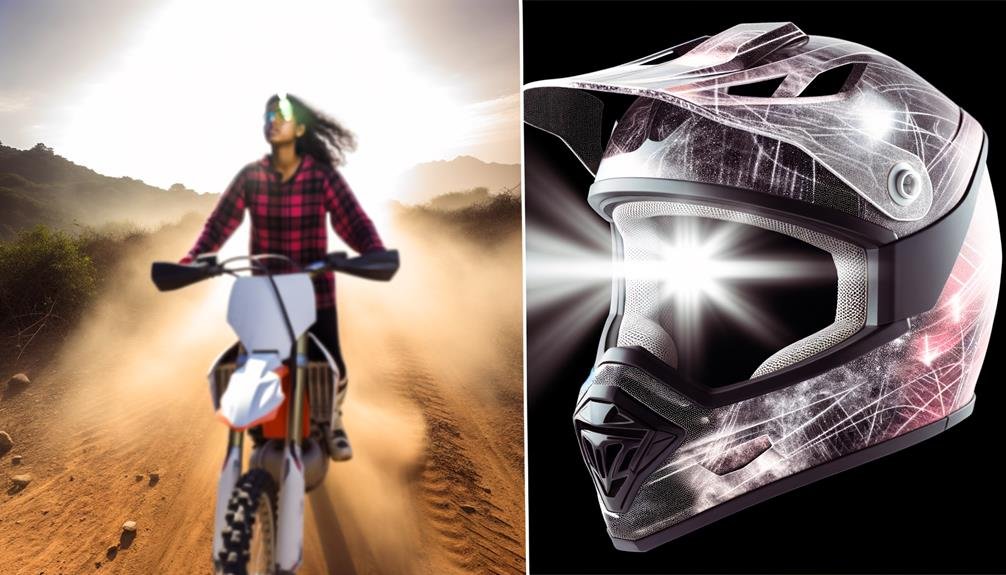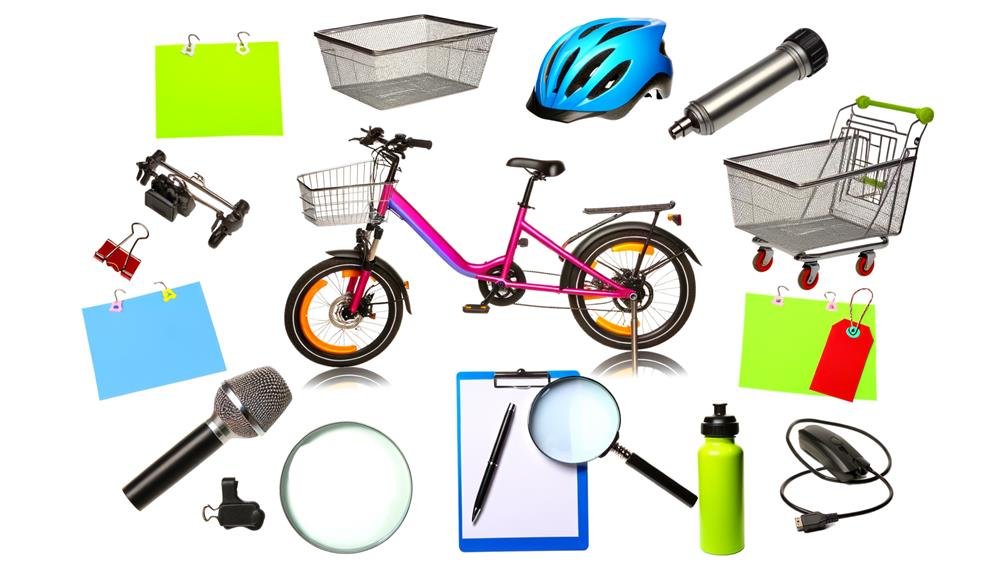Charles Miller is a veteran bike enthusiast with over 12 years of experience dealing with bikes as a mechanic. Despite immense love and expertise for...
Imagine the wind rushing through your hair as you effortlessly glide down the road on your sleek, new electric bike.
We're here to discuss the legal implications of this increasingly popular mode of transport. Are we bound by the same rules as traditional bicycles, or are there additional regulations we must adhere to?
It's not as straightforward as you might think, and the answer varies depending on where you live. But don't worry, we're going to navigate through this legal maze together.
Curious? Let's get started.
- Key Takeaways
- Understanding Electric Bike Regulations
- Legal Definition of an Electric Bike
- License and Insurance Requirements
- Motor Power and Throttle Restrictions
- Age Restrictions for E-bike Riders
- Helmet Laws for E-bike Riders
- Road Rules for Electric Bikes
- Handling E-bike Accidents and Legalities
- Frequently Asked Questions
- Conclusion
Key Takeaways
- Electric bikes in Texas are classified into three categories: Class 1, Class 2, and Class 3, each with specific motor power and speed regulations.
- Riders do not need a license or specific registration to ride an electric bike in Texas, but insurance is recommended.
- Age and helmet restrictions vary based on the class of the electric bike and local laws.
- Electric bikes are allowed on Texas roadways, bike paths, and trails unless otherwise posted.
Understanding Electric Bike Regulations
In order to ensure a safe and legal ride on electric bikes in Texas, it's crucial to understand the specific regulations that govern their use. This includes classifications, motor power, throttle usage, age restrictions, and helmet laws.
We've seen how electric bikes are classified into three categories, each with specific motor and speed regulations. It's essential to know which class your electric bike falls under, as this will dictate your speed limit and throttle usage.
While licenses or registrations aren't required for riding an electric bike, we must adhere to traffic laws and age-specific regulations. This means respecting bike lanes, following local authority directives, and being aware of any age restrictions.
Although electric bikes are currently prohibited from non-motorized trails, we're closely monitoring proposed legislation changes that might affect this rule.
Understanding E-bike laws isn't just crucial for our safety but also to address any customer inquiries effectively. This knowledge lets us ride our electric bikes safely and legally, ensuring that we're responsible riders who respect and follow the laws of Texas.
Legal Definition of an Electric Bike
Building on our understanding of e-bike regulations, let's now clarify what legally defines an electric bike in Texas.
In this state, an electric bike is classified into one of three categories, each with its specific features and speed limits.
Class 1 electric bikes have a motor that assists while riding, but only when the rider is pedaling, and their top speed is capped at 20 mph.
Class 2 electric bikes, on the other hand, have a throttle-actuated motor, meaning it can be operated without pedaling, but the top speed remains the same as Class 1.
Class 3 electric bikes are a bit different. These bikes have a motor that assists while pedaling and can reach speeds up to 28 mph.
License and Insurance Requirements
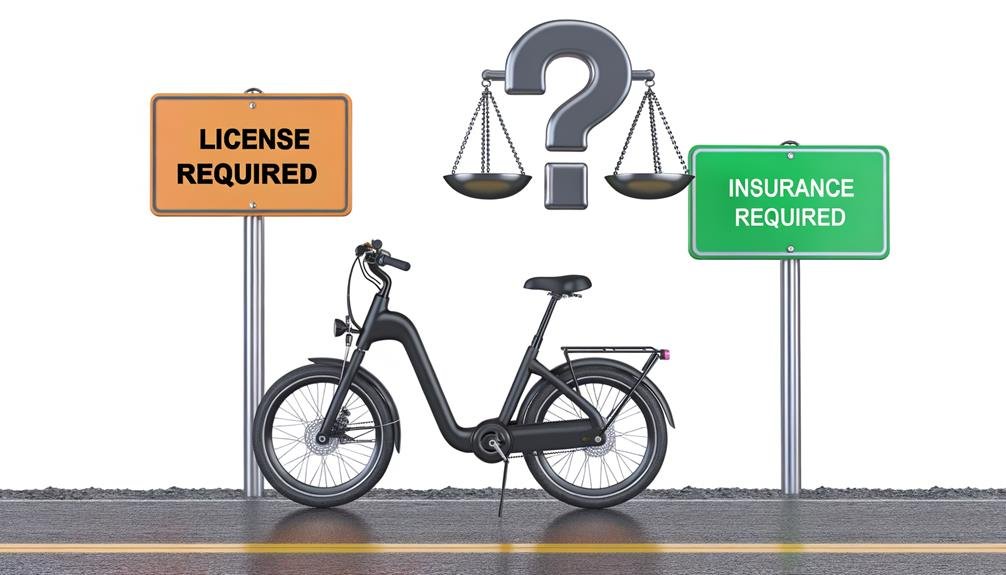
We're now moving on to discuss the license and insurance requirements for riding an electric bike.
This includes understanding the different licensing requirements, the necessity of insurance, and the local law considerations.
These factors are crucial for anyone planning to ride an electric bike on the road.
Understanding License Requirements
When it comes to riding an electric bike in Texas, you'll be pleased to know that no license or specific registration is required. To understand license requirements and to answer the question 'Is it legal to ride an electric bike on the road?', let's delve deeper:
- Riders under 18 and all Class 3 e-bike riders must wear a helmet.
- Class 3 riders need to be at least 16 due to the bike's higher speed.
- For Class 1 and Class 2 e-bikes, riders must:
- Be able to ride a bike
- Be aware of all regulations
You don't need a license to operate electric bicycles in Texas. We're here to make understanding license requirements easier and to assure you that you can enjoy your e-bike without legal worries.
Necessity of Insurance
Shifting gears to the subject of insurance, it's important to note that while you don't need a license for your e-bike in Texas, understanding whether insurance is necessary remains a crucial aspect of your ride. For all classes of electric bicycles, being insured isn't mandated within the law.
Yet, it's prudent to consider insurance given the potential for accidents. Regardless of ride class, insurance can provide peace of mind and financial protection. The use of eBikes is growing and so too are incidents involving them. Hence, while insurance isn't a legal obligation for your electric bike, it's a wise precaution.
Riding your eBike insured ensures you're not just riding, but riding responsibly.
Local Law Considerations
Frequently, local laws in Texas present unique considerations for electric bike riders, particularly in terms of licensing and insurance requirements. In Texas, you don't need a license or specific registration to ride an electric bike.
Our community of riders needs to be aware of these local law considerations:
- Class of electric bikes:
- Class 3 electric bikes: Riders of any age must wear a helmet. Individuals under 15 years old can't operate these bikes, except as passengers.
- Where electric bikes are allowed:
- Electric bikes are allowed on all roadways, riding as far right as feasible.
Know your local laws, respect maximum speed limits, and always ask yourself, 'Is it legal to ride an electric bike on the road?' before setting off.
Motor Power and Throttle Restrictions
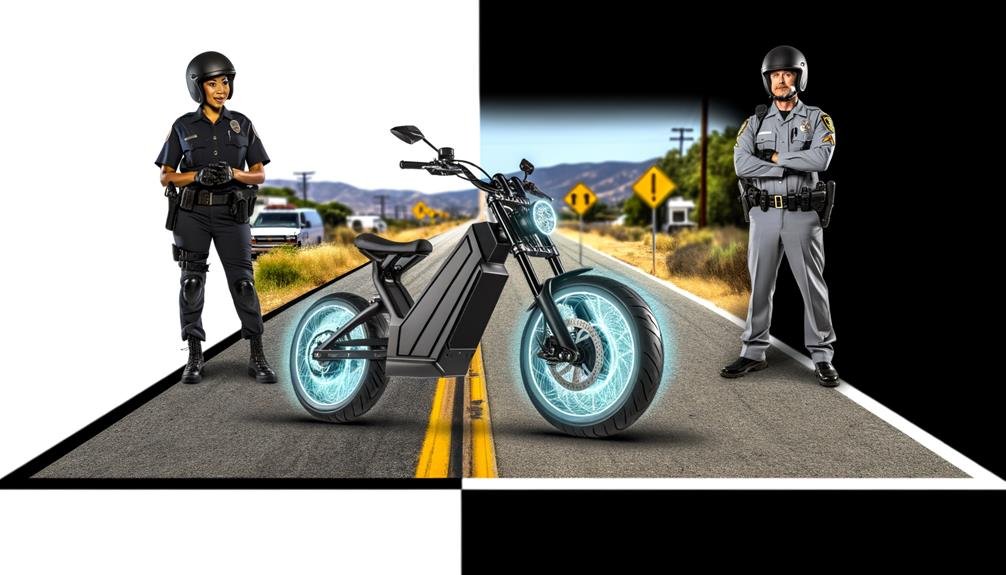
As we move forward with our discussion on electric bikes, it's important to understand the distinctions in motor power and throttle restrictions.
These factors can greatly influence the capabilities of the bike, as well as where and how it can be legally operated.
We'll now look into the specifics of these restrictions, ensuring a clear comprehension of what's allowed and what's not.
Understanding Motor Power
In Texas, the motor power and throttle restrictions for electric bikes differ based on their classification, with specific requirements for class 1, class 2, and class 3 electric bikes. Here's what we're looking at in our understanding of motor power:
- Class 1 electric bikes are equipped with a motor that provides assistance only when you're pedaling, up to 20 mph.
- Class 2 electric bikes have a throttle-actuated motor, independent of pedaling, also up to 20 mph.
We've got to pay particular attention to the Class 3 electric bike. It's electric motorized, but the motor only assists when you're pedaling, and it cuts off at a higher speed, 28 mph. This is crucial to know for all of us who want to stay within the law while enjoying the benefits of our e-bikes.
Throttle Restrictions Explained
Let's delve into the throttle restrictions for electric bikes, a key component in understanding their legal usage. Throttle restrictions are crucial to how fast one can legally ride these bikes.
The table below breaks down the throttle restrictions for each class of e-bike:
| Class | Max Speed |
|---|---|
| 1 | 20 mph |
| 2 | 20 mph |
| 3 | 28 mph |
Class 1 and 2 e-bikes have a top legal speed of 20 mph, with Class 2 offering a throttle-actuated motor for easy riding. Class 3, however, can reach up to 28 mph, but helmet use is mandatory. This information helps us comprehend throttle restrictions explained and ensures e-bike riders know what is legal to ride.
Age Restrictions for E-bike Riders
Navigating the age restrictions for e-bike riders is crucial. It is important to know that riders under 15 years old are not permitted to operate a Class 3 electric bike, unless they are passengers. This minimum age restriction is set to ensure rider safety, which is paramount in the e-bike community.
Potential customers need to be aware of the following details regarding age restrictions:
For Class 1 and Class 2 e-bikes:
- The rider must be capable of operating a bicycle and have a clear understanding of the regulations.
- There is no minimum age requirement.
For Class 3 e-bikes:
- The rider must be at least 16 years old.
- Regardless of age, all riders are required to wear helmets.
This age-focused structure ensures that young riders under the age of 15 years are not exposed to the higher speeds of Class 3 e-bikes, prioritizing their safety. It is about fostering a community of responsible e-bike riders who respect the rules and each other. Our hope is that these age restrictions encourage safe and enjoyable e-biking for everyone.
Helmet Laws for E-bike Riders

Having examined the age restrictions, we now turn our attention to another critical aspect of e-bike regulations – the helmet laws.
It's essential to note that helmet laws for e-bike riders aren't universal, but vary based on location and the specific class of e-bike.
In many areas, riders under 18 are obligated to wear a helmet. This law isn't just for the safety of inexperienced riders, but it also applies to seasoned mountain biking enthusiasts, helping protect them from potential danger. The law extends to Class 3 e-bike riders, regardless of age, due to their bikes' increased top speed.
The wisdom behind these regulations is clear. E-bikes, particularly those used for mountain biking, can reach speeds exceeding 68 km/h. At such speeds, the risk of serious injury increases, making a helmet indispensable.
It's crucial for all bike riders, not just those on electric bicycles, to understand and respect these laws. Staying informed about helmet laws for e-bike riders isn't only a legal requirement but also a matter of personal safety.
Road Rules for Electric Bikes
Moving on from helmet laws, we delve into the road rules specifically applicable to Class 1, Class 2, and Class 3 electric bikes in Texas, which must adhere to the same regulations as traditional bicycles.
Texas categorizes electric bikes into three classes, each with unique motor and speed restrictions. Here's a quick breakdown:
- Class 1: These bikes are pedal-assist only with no throttle, and they must cease assistance at 20 mph.
- Class 2: These include throttle-powered bikes that don't require pedaling and must cease assistance at 20 mph.
- Class 3: These are pedal-assist bikes, with or without a throttle, and must cease assistance at 28 mph.
Riders under 18 are required to wear a helmet, and Class 3 e-bike riders must be at least 16 years old due to the higher top speed. E-bikes are allowed on all Texas roadways, staying as far right as possible, and can use bike paths and trails unless otherwise posted.
Retailers and riders should stay informed about e-bike laws to ensure compliance and promote a positive e-bike culture.
Handling E-bike Accidents and Legalities
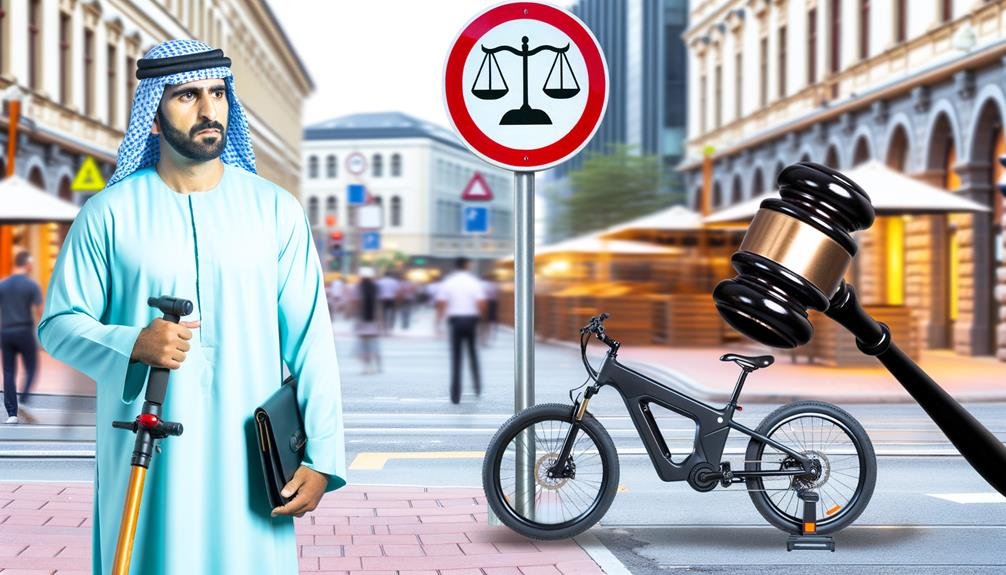
After observing the road rules pertaining to electric bikes in Texas, it's crucial to examine the procedures and legal responsibilities that come with potential e-bike accidents. In this regard, handling e-bike accidents and legalities is a multifaceted task that requires immediate attention.
Should an accident occur while pedaling, the first step is to seek immediate medical attention. It's not just about your well-being, but also a legal necessity. Consulting a personal injury attorney is beneficial for advice and legal guidance following an accident. Remember, riders are accountable for any injuries caused by their e-bikes.
Be aware that the top speed of most e-bikes mustn't exceed 20 miles per hour. If you're caught exceeding this limit, it's not just unsafe, but can be seen as illegal to ride. Riding under the influence also carries legal consequences, including fines.
Frequently Asked Questions
Can I Ride an E-Bike on the Road?
Yes, we can ride e-bikes on the road. We must follow local ordinances, e-bike regulations, and safety measures. There's no insurance requirement, but good e-bike maintenance and etiquette are important for our community.
Do You Need a License for an Ebike in Texas?
We're clear on Texas ebike regulations: no license or specific registration's needed. There aren't any ebike insurance requirements. Off road usage, parking rules apply. Helmet laws do exist, especially for riders under 18 years.
What Is the Speed Limit on Ebikes in Texas?
We're well-versed in Texas legislation regarding eBike regulations. In Texas, Class 1 and 2 eBikes can't exceed 20 mph, while Class 3 eBikes are limited to 28 mph. Speed control is key for our safety.
Are E-Bikes Street Legal in Ny?
We're shifting gears to New York now. Yes, e-bikes are street legal in NY, following specific NYC regulations. Helmet requirements, traffic rules, and pedestrian safety measures are crucial. E-bike insurance and battery disposal are also advisable.
Conclusion
So, are we free as a bird to zip around on our electric bikes? Well, not quite.
Oddly enough, while they're often seen as green, easy alternatives, they can be tangled in a web of regulations. We need to be mindful of our local laws – speed limits, helmet requirements, even age restrictions.
It's a little ironic, isn't it? The simpler our ride, the more complex the rules.
Remember, staying informed is the key to enjoying our e-bike rides responsibly.

Charles Miller is a veteran bike enthusiast with over 12 years of experience dealing with bikes as a mechanic. Despite immense love and expertise for his Tacoma, he rides his Trek Ebike more. Anytime you meet him, you’ll either hear him talking about Bikes, or writing about all things bikes and cars on this blog.
More Posts

